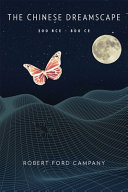

Most ebook files are in PDF format, so you can easily read them using various software such as Foxit Reader or directly on the Google Chrome browser.
Some ebook files are released by publishers in other formats such as .awz, .mobi, .epub, .fb2, etc. You may need to install specific software to read these formats on mobile/PC, such as Calibre.
Please read the tutorial at this link: https://ebookbell.com/faq
We offer FREE conversion to the popular formats you request; however, this may take some time. Therefore, right after payment, please email us, and we will try to provide the service as quickly as possible.
For some exceptional file formats or broken links (if any), please refrain from opening any disputes. Instead, email us first, and we will try to assist within a maximum of 6 hours.
EbookBell Team

5.0
28 reviewsIn these many sources, we find culturally distinctive answers to questions peoples the world over have asked for millennia: What happens when we dream? Do dreams foretell future events? If so, how might their imagistic code be unlocked to yield predictions? Could dreams enable direct communication between the living and the dead, or between humans and nonhuman animals? The Chinese Dreamscape, 300 BCE–800 CE sheds light on how people in a distant age negotiated these mysteries and brings Chinese notions of dreaming into conversation with studies of dreams in other cultures, ancient and contemporary. Taking stock of how Chinese people wrestled with—and celebrated—the strangeness of dreams, Campany asks us to reflect on how we might reconsider our own notions of dreaming.